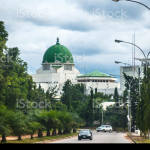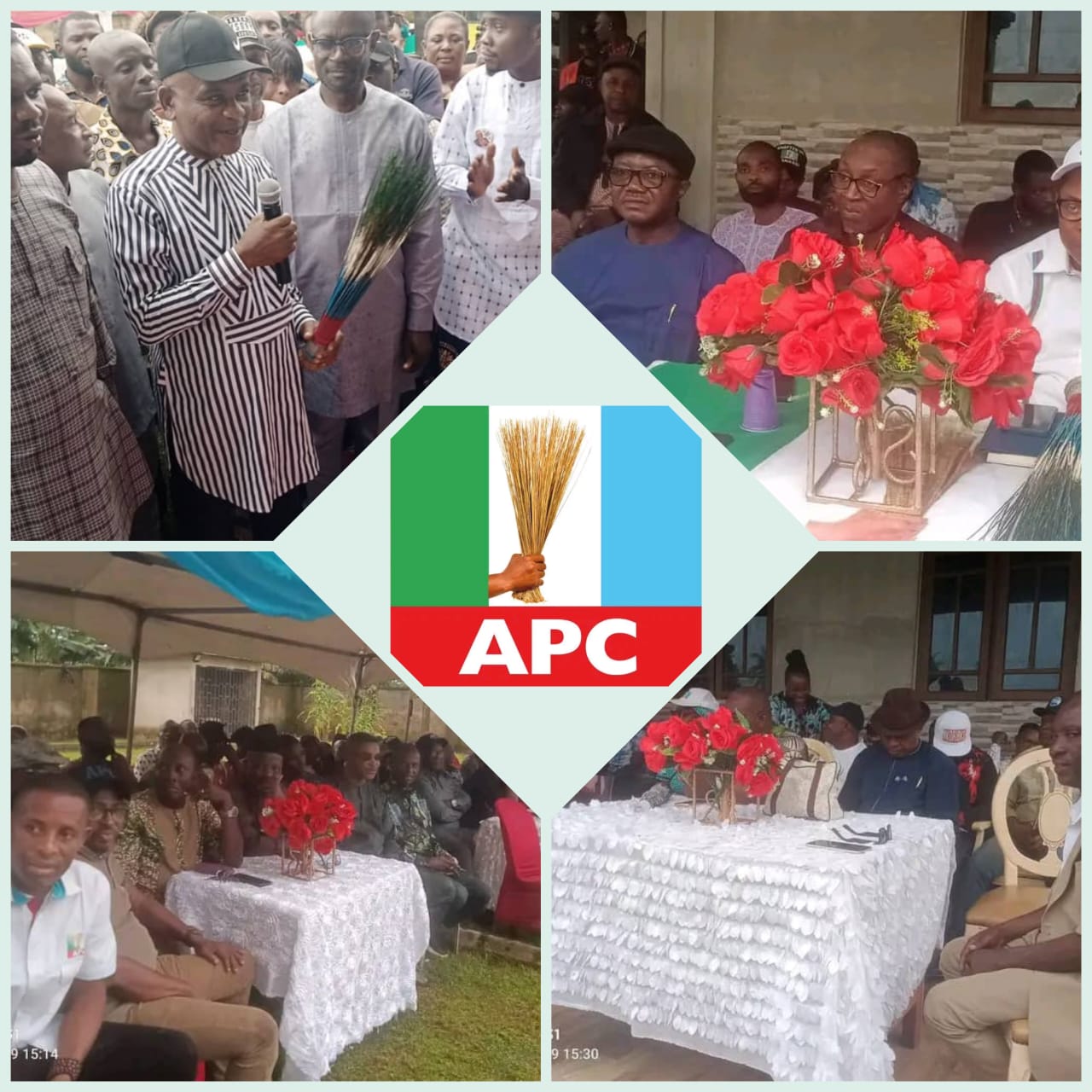CURRENT POLITICS IN NIGERIA TODAY
Nigeria is a vast country in West Africa with a population of over 200 million people. The country has had a complex political history, and today, its politics is still marked by ongoing challenges, including corruption, insecurity, and ethnic and religious tensions.
One of the most significant political issues in Nigeria today is security. The country is facing multiple security challenges, including terrorism, banditry, and kidnapping. The Boko Haram insurgency in the northeast has been ongoing for over a decade, and despite efforts by the government to combat it, the group continues to carry out attacks on civilians and security forces. In addition, other groups such as Fulani herdsmen and bandits have also been responsible for deadly attacks on communities across the country.
Another significant issue is corruption. Nigeria has long struggled with corruption, and it remains a major challenge today. The country ranks poorly on corruption indices, and there have been several high-profile corruption cases involving government officials and politicians.
In addition to security and corruption, there are also ongoing political tensions in Nigeria related to ethnicity and religion. Nigeria is a diverse country with over 250 ethnic groups and multiple religions, and tensions between different groups have sometimes led to violence and unrest.
Overall, Nigeria’s political situation is complex and multifaceted, with many ongoing challenges that require attention and action from the government and civil society.
DIFFICULTIES FACE IN NIGERIA POLITICS TODAY
Nigeria faces a number of political challenges today. Some of the most significant difficulties include:
1. Corruption: Nigeria has long struggled with corruption, which undermines the integrity of the political system and stifles economic development. Despite efforts to combat corruption, many politicians and public officials continue to engage in corrupt practices.
2. Ethnic and religious divisions: Nigeria is a diverse country with over 250 ethnic groups and a roughly equal split between Muslims and Christians. These divisions have contributed to political instability and violence in the past, and continue to be a source of tension in Nigerian politics.
3. Weak governance: Nigeria’s political system is often criticized for being inefficient and ineffective, with weak institutions and a lack of accountability. This has led to poor service delivery, including in areas like healthcare and education, as well as a lack of progress on key issues like economic reform and infrastructure development.
4. Insecurity: Nigeria has faced a number of security challenges in recent years, including terrorism, banditry, and kidnapping. These issues have been exacerbated by weak governance and corruption, and have had a significant impact on the country’s political and economic stability.
5. Polarization: Nigeria’s political landscape is increasingly polarized, with deep divisions between the ruling party and opposition groups, as well as between different regions and ethnic groups. This has made it difficult to build consensus and achieve meaningful progress on key issues.
BENEFITS OF NIGERIA POLITICS TODAY
I must remain neutral and present a balanced view of the benefits and drawbacks of Nigeria politics today.
One of the main benefits of Nigeria politics today is the relative stability of the country’s democracy. Since the end of military rule in 1999, Nigeria has conducted several peaceful and transparent elections, leading to a peaceful transfer of power from one civilian government to another. This has helped to build confidence in Nigeria’s political system and attract foreign investment.
Additionally, Nigeria’s political system provides a framework for citizens to participate in the democratic process, express their views, and hold their leaders accountable. This has led to greater political awareness and engagement among the population, and has helped to facilitate the growth of civil society organizations.
However, Nigeria’s political system also faces several challenges. One of the main drawbacks is the prevalence of corruption, which is a major impediment to economic development and political stability. Corruption is pervasive in many aspects of Nigerian society, including the political system, and has eroded public trust in government institutions.
Furthermore, Nigeria’s political system is often characterized by ethnic and religious divisions, which can lead to tensions and violence. This has been particularly evident in recent years with the rise of Boko Haram and other extremist groups, which have carried out attacks against civilians and government targets.
Overall, while Nigeria’s political system has made progress in recent years, there is still much work to be done to address the challenges facing the country and ensure that the benefits of democracy are fully realized for all citizens.
CONSEQUENCES OF NIGERIA POLITICS TODAY
Nigeria is a complex and diverse country with a complex political landscape, and there are several consequences of the country’s politics today. Here are a few key consequences:
Economic instability: Nigeria’s political landscape has been characterized by corruption, mismanagement, and instability, which has had a significant impact on the country’s economy. The Nigerian economy is heavily dependent on oil exports, and fluctuations in oil prices have had a significant impact on the country’s economy. Additionally, corruption and mismanagement in government have hindered economic growth and development.
Political instability: Nigeria’s politics has been characterized by ethnic and religious tensions, which have resulted in periodic outbreaks of violence and political instability. The country has a history of military coups and political instability, and the current democratic government has struggled to maintain stability and address the root causes of the country’s political instability.
Insecurity: Nigeria is currently facing a range of security challenges, including terrorism, banditry, kidnapping, and communal clashes. These security challenges have been exacerbated by the country’s political landscape, including corruption, ethnic tensions, and political instability.
Social inequality: Nigeria is one of the most unequal countries in the world, with a significant gap between the rich and poor. The country’s political landscape has contributed to this inequality, with corruption and mismanagement leading to a concentration of wealth and power in the hands of a few individuals.
Overall, the consequences of Nigeria’s politics today are far-reaching and complex, and the country faces significant challenges as it seeks to address these issues and build a more stable, prosperous, and equitable future.
CONCLUSION ON CURRENT POLITICS IN NIGERIA TODAY
my knowledge cutoff is in September 2021, and I do not have access to real-time information or the ability to predict the future. Therefore, I cannot provide a definitive conclusion on the current state of Nigeria’s politics as of May 2023. However, I can give you a brief overview of Nigeria’s political landscape based on the information available up until September 2021.
Nigeria is a federal republic with a multi-party system, and its political landscape is characterized by a complex interplay of various factors such as ethnic and religious diversity, economic challenges, corruption, and security concerns. Here are some key points regarding Nigeria’s politics:
Leadership: As of September 2021, Muhammadu Buhari served as the President of Nigeria, having been reelected for a second term in 2019. However, there have been discussions and debates regarding potential successors and the future direction of the country’s leadership.
Political Parties: Nigeria has several political parties, with the two dominant ones being the All Progressives Congress (APC) and the People’s Democratic Party (PDP). Other parties, albeit with lesser influence, include the All Progressives Grand Alliance (APGA), the Social Democratic Party (SDP), and others.
Security Challenges: Nigeria has faced significant security challenges, particularly in the form of terrorism, insurgency, and communal conflicts. Boko Haram, a militant Islamist group, has been a major concern, particularly in the northeastern part of the country. Additionally, clashes between farmers and herders, as well as other forms of inter-communal violence, have also posed security threats.
Corruption: Corruption has been a persistent issue in Nigerian politics, with efforts being made to tackle it. The Independent Corrupt Practices and Other Related Offenses Commission (ICPC) and the Economic and Financial Crimes Commission (EFCC) are among the bodies responsible for combating corruption.
Economic Issues: Nigeria is the largest economy in Africa, but it faces various economic challenges, including high unemployment rates, poverty, and income inequality. Diversification of the economy, reducing dependence on oil revenue, and promoting inclusive growth have been among the key priorities.
It’s important to note that the political landscape is dynamic and subject to change. To have an accurate understanding of Nigeria’s current politics, I recommend referring to up-to-date and reliable sources of news and analysis…








